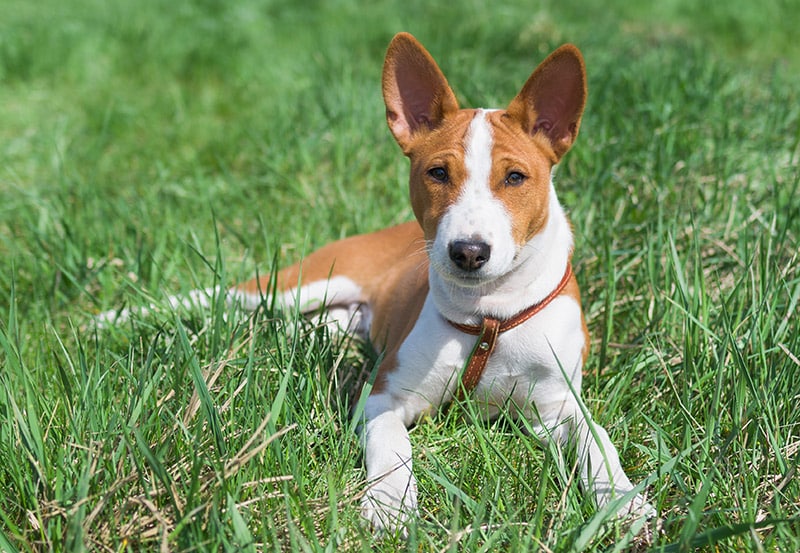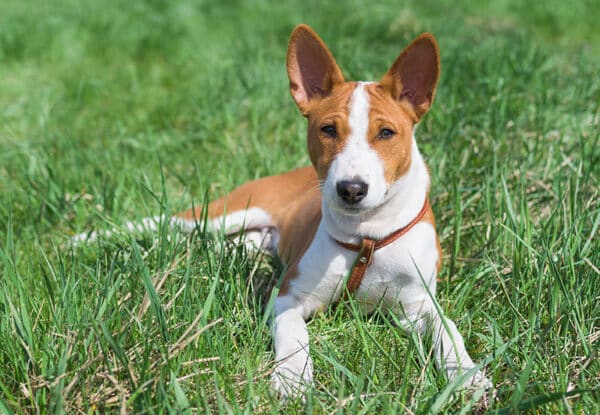Click to Skip Ahead
How did your little puppy grow up so fast? It’s like you blinked once, and now they’re halfway grown! If your puppy has recently reached their 5-month-old mark, congratulations! You’ve entered into a whole new world of fun and excitement.
There are bound to be plenty of changes, and some will be easier to manage than others. To prepare yourself for what you should expect during this phase of your puppy’s life, keep reading below.
What To Expect During the 5-Month Stage
The 5-month stage comes with a lot of changes, and there’s plenty to prepare for as your puppy creeps closer to 5 months old.
Diet
You shouldn’t need to switch your puppy’s food to an adult diet at this point. Depending on your dog’s health, breed, and size, your vet may suggest an earlier or later transition from puppy food to adult food.
Regardless, as the 5-month-old stage approaches, it is a good idea to begin researching adult foods so that the transition, when the time comes, will be seamless. Consulting your vet is a great way to decide which adult foods are best for your dog.
Another way is to look for foods approved by the Association of American Feed Control Officials (AAFCO), so you know what diet will provide for all of your dog’s nutritional needs.
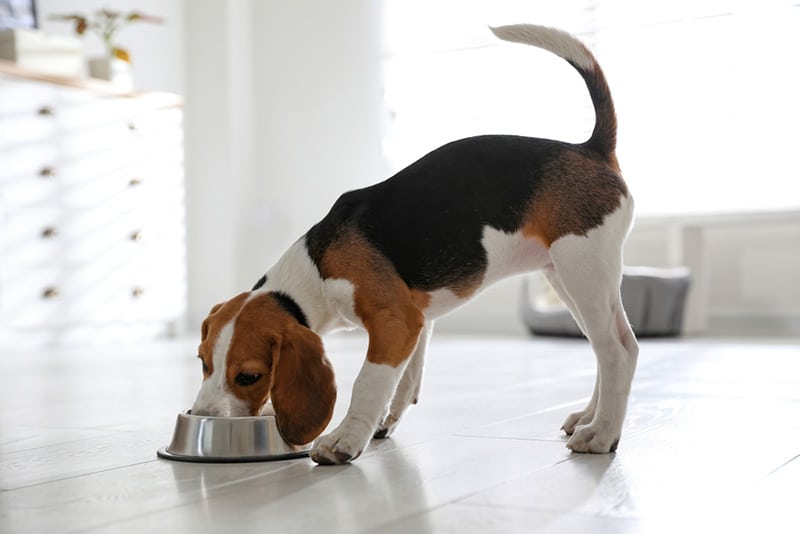
Growth and Development
At this stage, your puppy has likely developed all the house training skills they need. They should be capable of holding their bladder and bowels for longer periods, and their daily bathroom breaks will slightly decrease. If your puppy isn’t house-trained yet, don’t worry. Speak to your veterinarian to make sure there aren’t any health concerns getting in the way and enlist the help of a professional trainer if need be.
Some dogs may be reaching sexual maturity around this time as well. If you’re looking to have your puppy spayed or neutered, now is a good time to talk to your vet about the procedure’s benefits. If your dog remains intact, they may display unwanted behaviors, such as aggression and roaming.
Your puppy’s adult teeth should begin to grow around this time if they haven’t already started. Some dogs lose their baby teeth earlier or later than others, so don’t be alarmed if this happens outside the 5-month mark. If you’re concerned about your dog’s growth and development, don’t hesitate to reach out to your vet.
Behavioral Changes
Like humans, dogs can go through an adolescent rebellious phase. At this age, your dog is beginning to explore their independence. They will test the rules and may seem to “forget” their training. They’re just seeing what your boundaries are.
Be patient and consistent with training during this time. Reinforce desired behaviors rather than punishing undesired behaviors. Your dog will learn the rules and understand that they do not get rewarded for bad behavior. Eventually, they will fall in line. But in the meantime, enrolling them in a training class is a good idea.
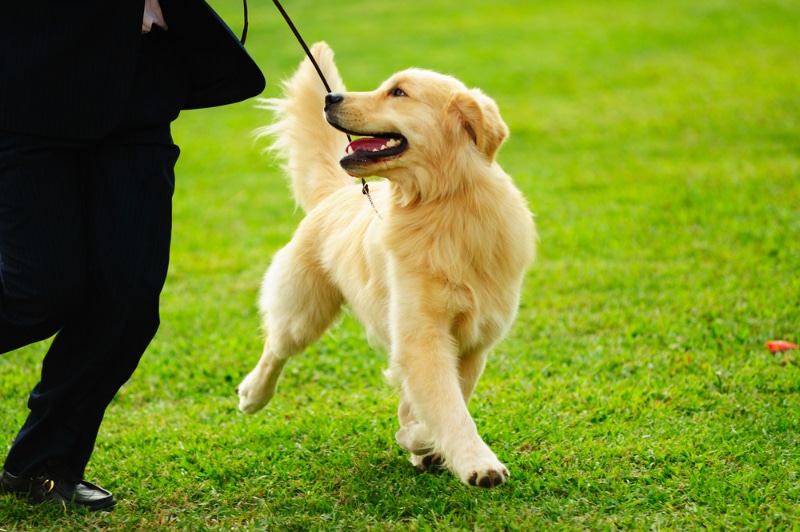
Grooming
If you haven’t already, now is an excellent time to establish a regular grooming routine. Grooming is an important part of maintaining your dog’s health and comfort, yet grooming care can feel scary to a puppy if they’re not used to being touched. Training your dog to be accustomed to you touching their body (including sensitive areas like the paws, ears, and mouth) is a great way to ensure that your dog not only accepts grooming but enjoys it.
Using an odor-neutralizing shampoo will keep the stinky dog smell away. Since puppies can get into things frequently due to their curious nature, having a great standby shampoo like this one is a must. Not every dog requires the same level of maintenance, so talk to your vet or a professional groomer about your dog’s coat care needs.
You must also care for your dog’s teeth, ears, and nails. You can purchase dental chews to maintain your dog’s oral health, but you should regularly brush their teeth with canine toothpaste. Check their ears regularly, clean them as needed, and trim your dog’s nails when they get long.
Health
Keep in touch with your vet to ensure that your dog receives all of their scheduled vaccinations. You should also consider pet insurance before any accidents or illnesses can occur. Most pet insurance plans do not cover pre-existing conditions, so purchasing a policy before you need one is essential.
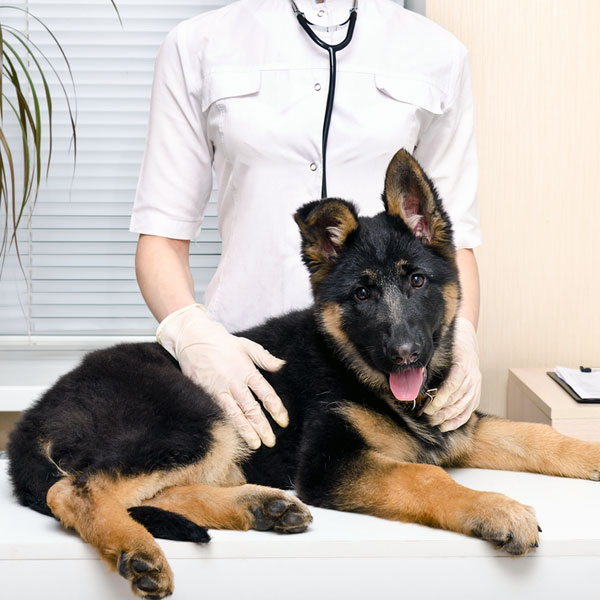
Training
House training is not the end of your dog’s training needs. They also need to learn obedience training to grow into a well-mannered adult. Keeping a consistent training schedule is the best way to teach your dog.
Practicing with your puppy for 10 minutes each day is a great way not only to train them effectively but also to bond with them. Start working on basic commands such as sit, stay, and heel.
This is a great time to leash-train your dog. Teaching your puppy how to behave on walks will ensure that they do not drag you all over the place as an adult. Enrolling your dog in obedience classes may be helpful in training them further.
Exercise
Your puppy will surely be packed full of energy, and exercise is a great way to burn it off. While exercise keeps your puppy fit and happy, too much of the wrong kind can harm their health. Finding an even middle ground is essential for your dog’s well-being.
High-impact activities, such as running or agility, can damage your dog’s growing joints and cause issues down the road. Instead, stick to brisk, short walks or games of fetch in the soft grass.

When Does a Puppy Finish Growing?
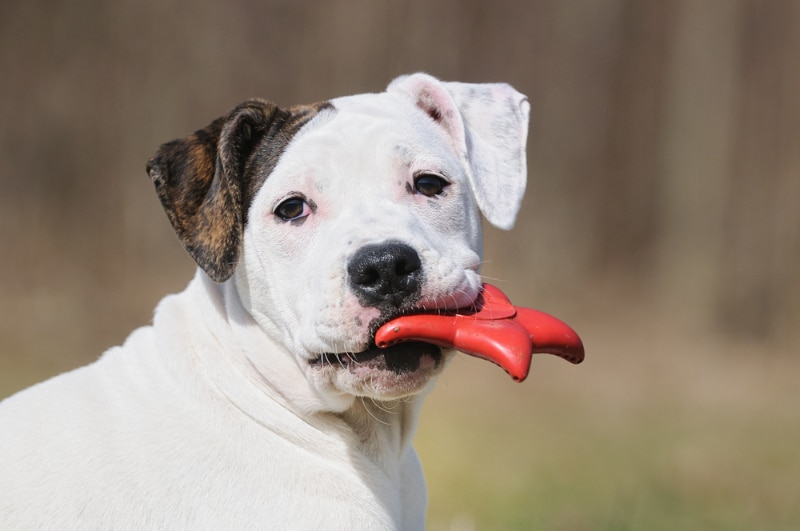
Looking at how big your puppy is at 5 months, it can be hard to imagine them getting bigger. For most dogs, 5 months is only the start. If you want to know how much longer you have to wait for your puppy to finish growing, take a look at the chart below for approximations based on breed size.
| Breed Size | Age Fully Grown |
| Small | 6 – 12 months |
| Medium | 12 – 15 months |
| Large | 15 – 18 months |
Of course, these numbers are generalizations and vary between individuals. For a more personalized estimate, talk to your vet so they can evaluate your puppy’s growth progress.
Final Thoughts
Each life stage comes with its own milestones and challenges. It can be easy to feel overwhelmed once your puppy hits 5 months of age, but there’s no need to worry as long as your vet is content with your puppy’s growth and development. Instead of stressing, take the time to appreciate the season of life your puppy is in. It’s only going to happen once, after all.
Featured Image Credit: Yuri Kravchenko, Shutterstock

